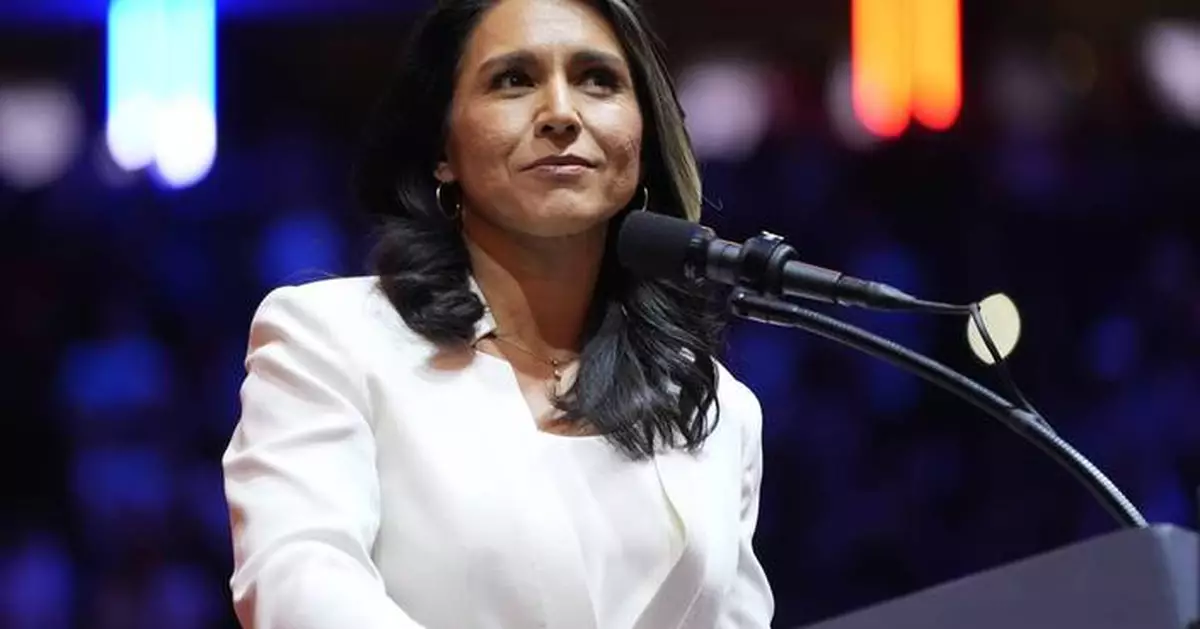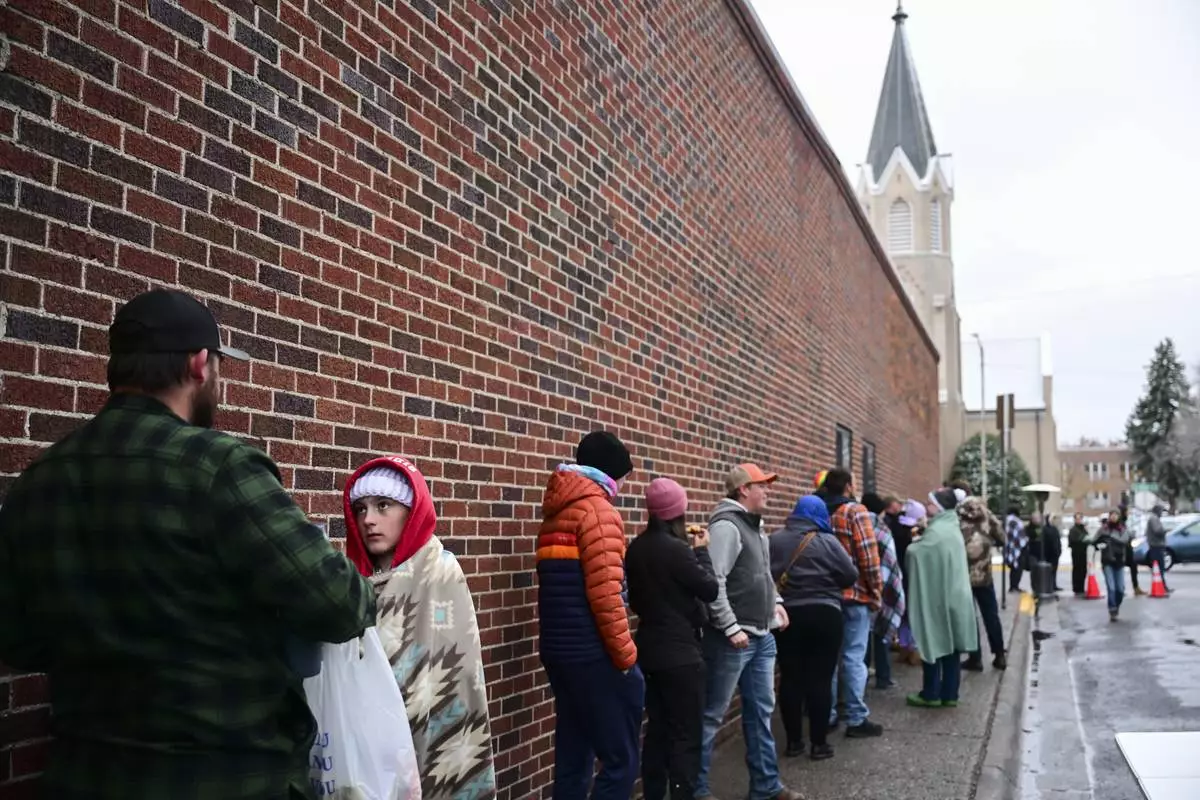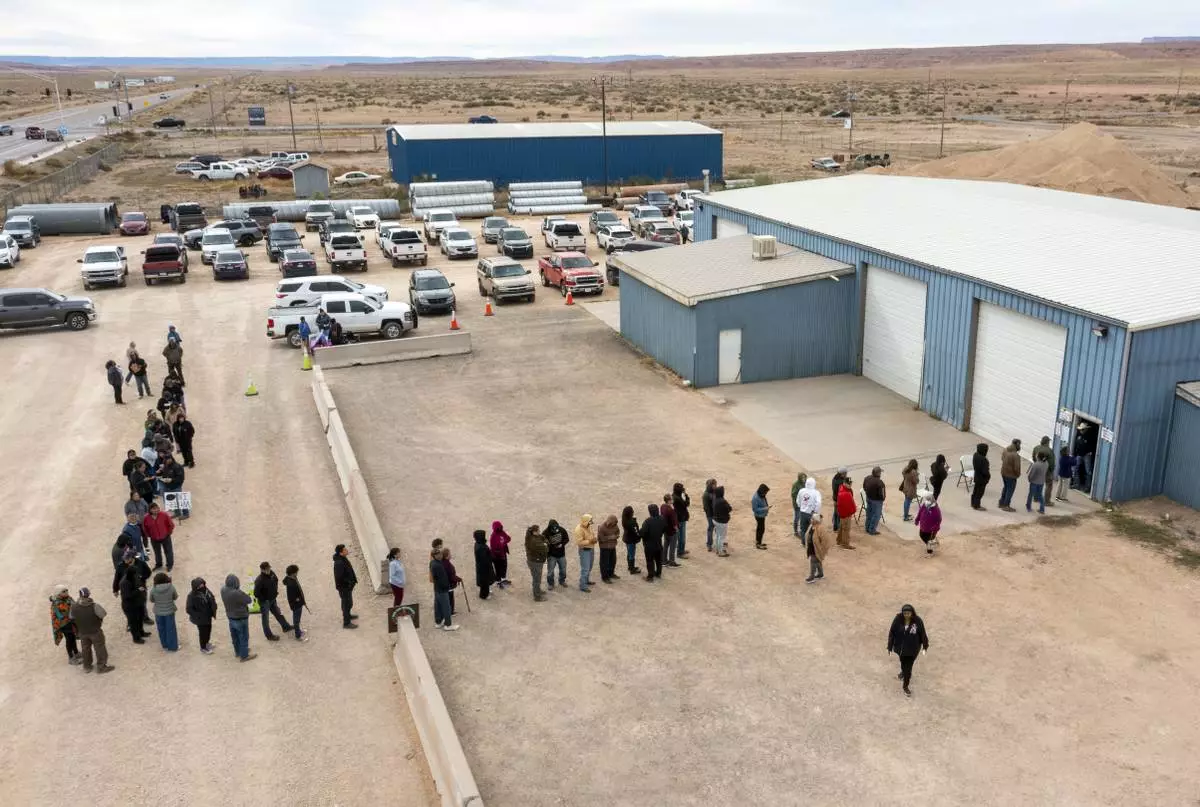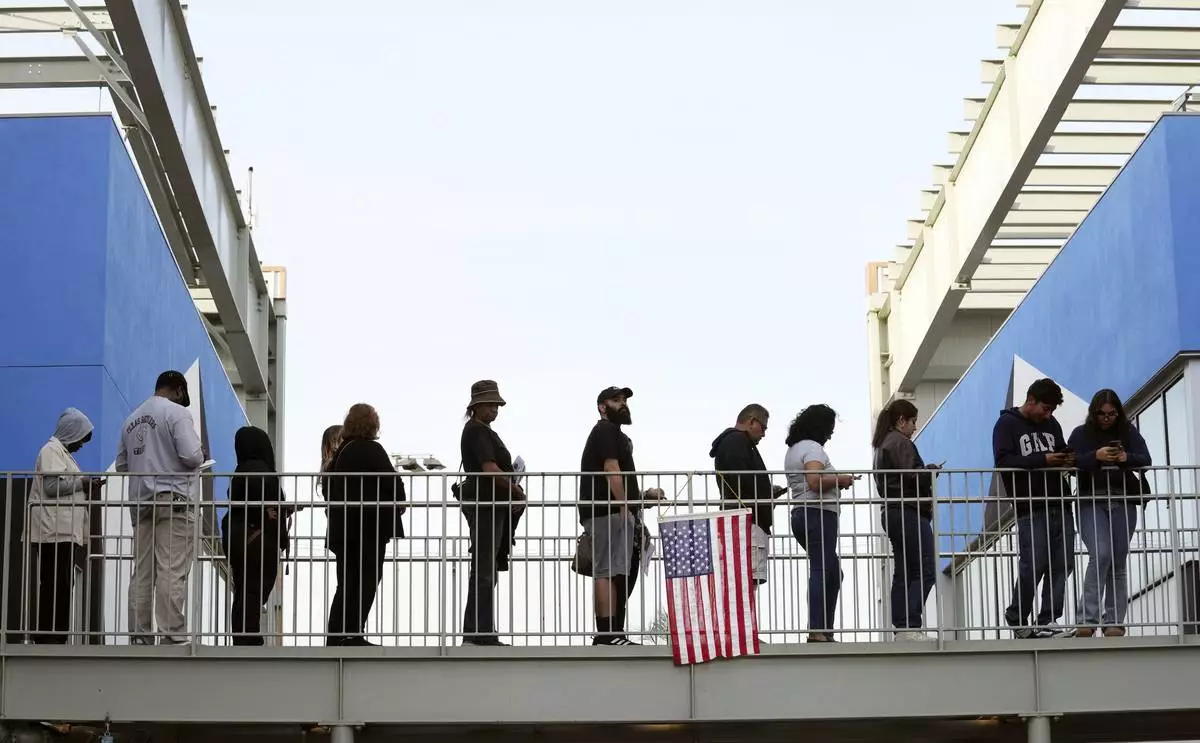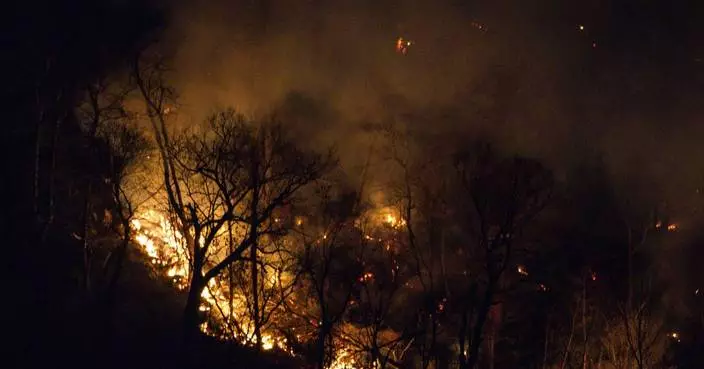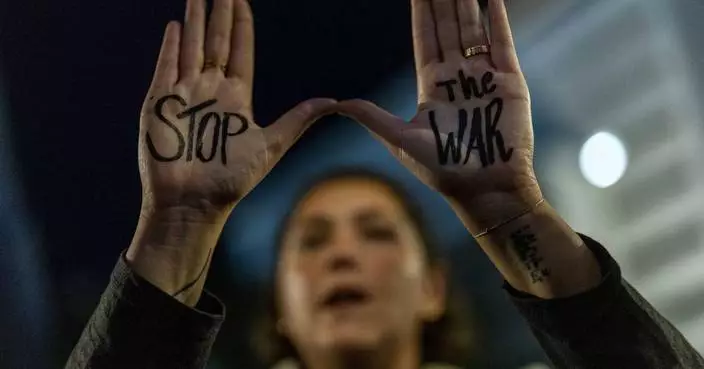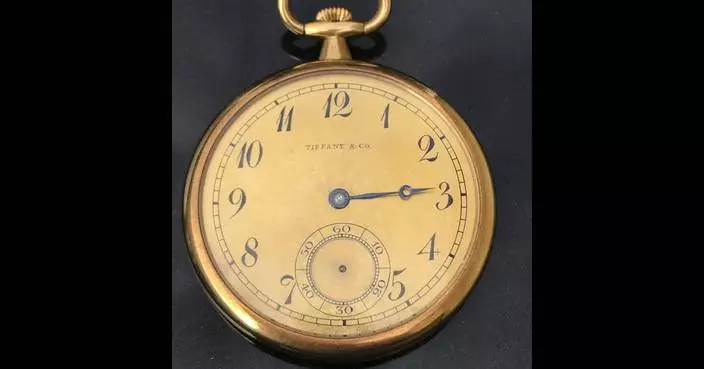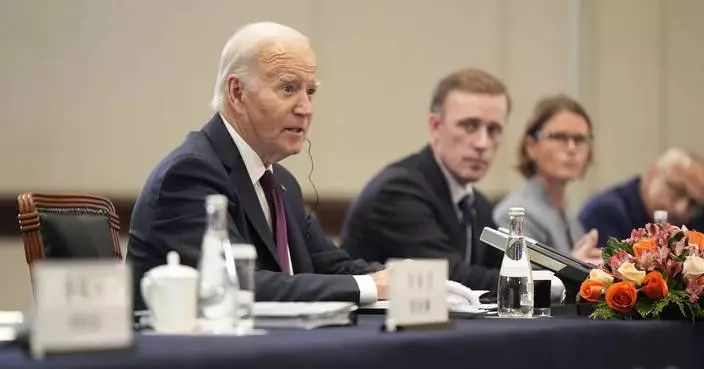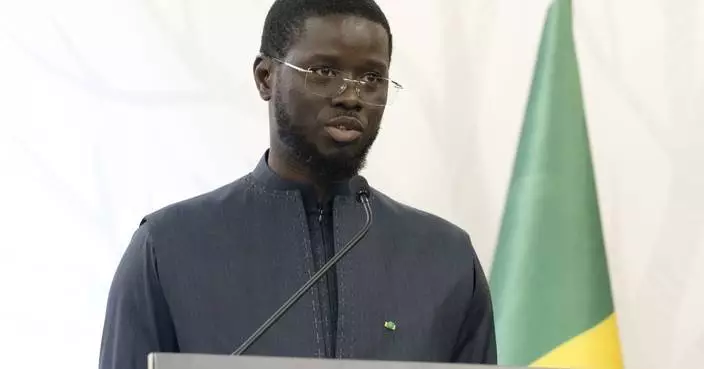WASHINGTON (AP) — Tulsi Gabbard, President-elect Donald Trump's choice to lead the U.S. intelligence services, in 2022 endorsed one of Russia's main justifications for invading Ukraine: the existence of dozens of U.S.-funded biolabs working on some of the world's nastiest pathogens.
Moscow claimed Ukraine was using the labs to create deadly bioweapons similar to COVID-19 that could be used against Russia, and that Russian President Vladimir Putin had no choice but to invade neighboring Ukraine to protect his country.
In fact, the labs are public and part of an international effort to control outbreaks and stop bioweapons.
Gabbard, a military veteran and a former Democratic congresswoman from Hawaii, later said she wasn't accusing the United States or Ukraine of anything nefarious and was just voicing concerns about protecting the labs.
But to critics in the U.S., including lawmakers in both parties, the comments showed a disturbing willingness to parrot Russian propaganda — a tendency that has earned Gabbard praise on Russian state TV.
Gabbard's past comments supportive of Russia — as well as secret meetings with Syria's president, a close ally of Russia and Iran — are attracting fresh scrutiny from Democrats and national security analysts who fear that as Trump's director of national intelligence she could give Russia a major win, undercut Ukraine, weaken U.S. national security and endanger intelligence ties with allies.
“Gabbard, like Gaetz, is like a hand grenade ready to explode,” former Trump national security adviser John Bolton said, speaking of Matt Gaetz, the former Florida congressman who is Trump's pick for attorney general. “Republicans who throw themselves on those grenades for Donald Trump are risking their own personal reputations and places in history.”
Gabbard says American assistance for Ukraine jeopardizes global security by antagonizing Russia. She has criticized Ukrainian President Volodymyr Zelenskyy as corrupt and has expressed sympathy for Russia’s position, given Ukraine’s desire to join NATO, the Western military alliance.
“This war and suffering could have easily been avoided if Biden Admin/NATO had simply acknowledged Russia’s legitimate security concerns,” she posted on Twitter at the start of Russia’s invasion in 2022.
Democrats say Gabbard’s comments signify a pro-Russian bent that poses a problem for U.S. national security if she is confirmed by the Senate.
“Do you really want her to have all of the secrets of the United States and our defense intelligence agencies when she has so clearly been in Putin’s pocket?” Sen. Elizabeth Warren, D-Mass., said on MSNBC. “That just has to be a hard no.”
The Office of the Director of National Intelligence was created after the Sept. 11, 2001, attacks to coordinate the nation's intelligence agencies and act as the president's main intelligence adviser.
Gabbard and the Trump transition team did not respond to questions seeking comment. She has in the past defended her actions and said her military service — she has served in the Army National Guard for more than two decades and deployed to Iraq and Kuwait — has made her skeptical about military interventions.
Gabbard also has defended Trump's relationship with autocrats such as Putin, saying it shows Trump has “the courage to meet with adversaries, dictators, allies and partners alike in the pursuit of peace, seeing war as a last resort.”
Gabbard's own meetings with Syrian President Bashar Assad in 2017 angered many of her then-fellow Democrats. They said her visit helped legitimize a leader accused of war crimes and who has served as a proxy and host for Russia and Iran in the Middle East.
Assad welcomed Russia’s military into Syria in 2015 to crush a popular uprising against him. Russian forces and Iranian-allied militias have remained, using Syria as a base for attacks on American troops and their allies. The U.S. has severed diplomatic relations with Syria and placed Assad under heavy sanctions over the brutality with which he, Russian warplanes and Iranian-allied forces crushed the uprising, leading to 500,000 deaths.
Gabbard ran for president in 2020 before dropping out and endorsing Democrat Joe Biden, who defeated Trump. Two years later, she left the Democratic Party to become an independent, criticizing her former colleagues as an “elitist cabal of warmongers” and “woke” ideologues.
She subsequently campaigned for several high-profile Republicans, became a contributor to Fox News and started a podcast.
Gabbard's remarks about Russia haven't gone unnoticed in Moscow, where state-run media have praised her and even jokingly referred to her as a Russian agent.
An article published Friday in RIA Novosti, a major Russian state-controlled news agency, called Gabbard “superwoman" and noted her past appearances on Russian TV, claiming that Ukrainian intelligence views her as “probably an agent of the Russian special services.”
Gabbard's stance on Russia and Syria is likely to come up during her Senate confirmation.
Sen. John Cornyn, R-Texas, said that while he has questions about her comments and believes Gabbard should receive the traditional background check during her confirmation process, he doesn't second-guess her loyalties.
“I certainly would want to ask her about that,” Cornyn said of Gabbard’s Russia comments. “But I have no doubt that she’s a patriot. I mean, she served in the United States military and was deployed much of the time.”
America's allies are watching the nomination process closely, worried about how Trump's incoming administration could affect intelligence cooperation and sharing.
Trump's election raises “very difficult issues” for America's closest allies and members of the Five Eyes group, an intelligence-sharing coalition of the U.S., the United Kingdom, Australia, New Zealand and Canada, according to Thomas Juneau, a former strategic analyst with Canada's Department of National Defence.
“Will the U.S. be more selective in what it shares, to pressure allies? If yes, this will create mistrust between the U.S. and its closest partners,” Juneau said. “In the long term, this would negatively affect the Five Eyes, which is an extremely close partnership premised on an extraordinarily high level of trust.”
Some officials in allied governments declined to speak about Gabbard and other Trump picks. Since Biden’s dismal debate showing, which led to Vice President Kamala Harris becoming the Democratic nominee, some key European allies said they already were scrambling to build up a security strategy less reliant on the U.S.
French President Emmanuel Macron and other European officials underscored that publicly after the U.S. election.
Lederer reported from the United Nations. Associated Press writers Lynn Berry and Kevin Freking contributed to this report.
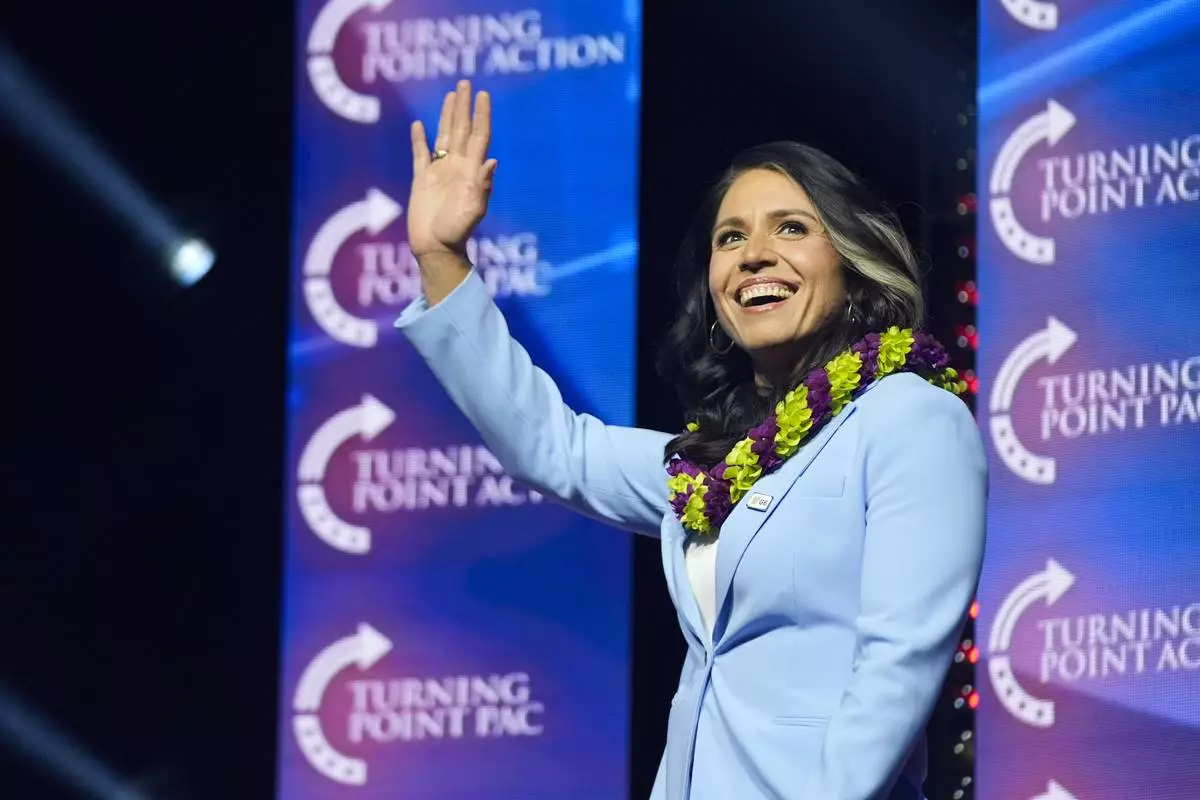
FILE - Former Democratic Rep. Tulsi Gabbard waves as she arrives to speak before Republican presidential nominee former President Donald Trump during a campaign rally at Thomas & Mack Center, Oct. 24, 2024, in Las Vegas. (AP Photo/Alex Brandon, File)
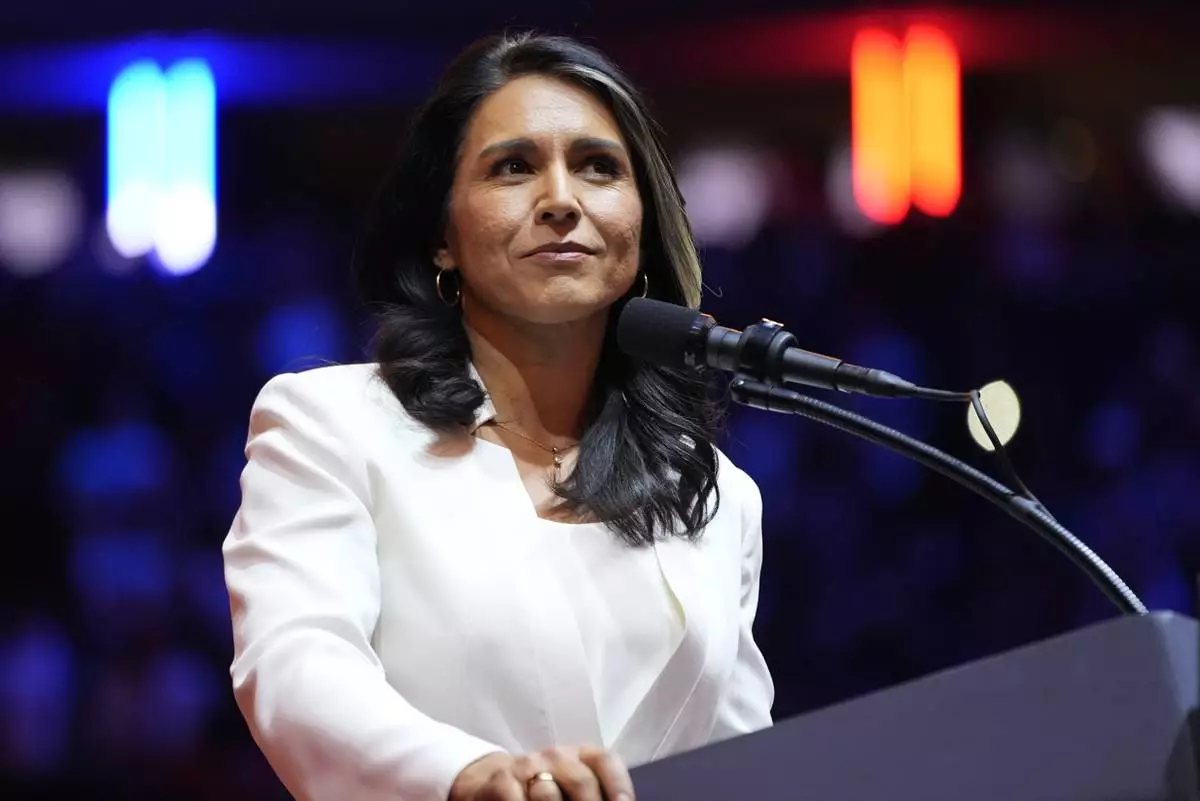
FILE - Tulsi Gabbard speaks before Republican presidential nominee former President Donald Trump at a campaign rally at Madison Square Garden, Oct. 27, 2024, in New York. (AP Photo/Alex Brandon, File)


